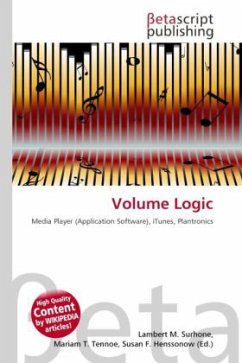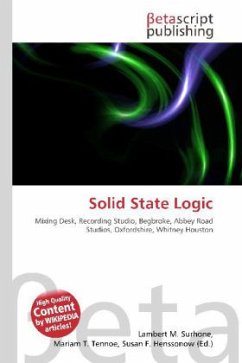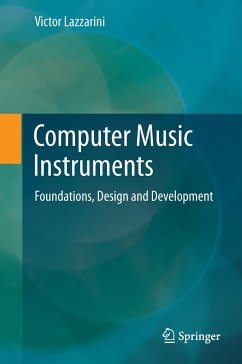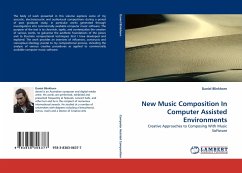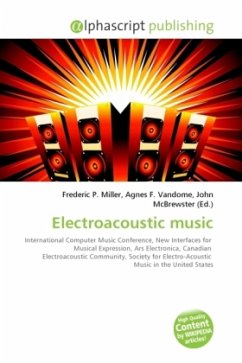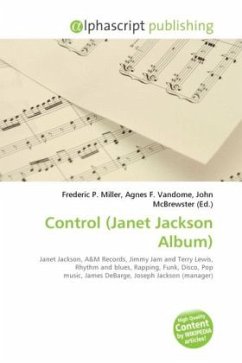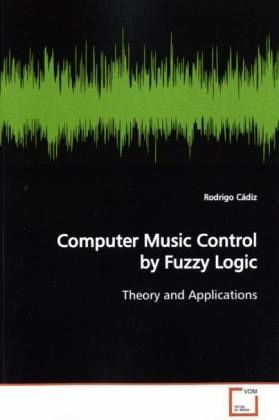
Computer Music Control by Fuzzy Logic
Theory and Applications
Versandkostenfrei!
Versandfertig in 6-10 Tagen
39,99 €
inkl. MwSt.

PAYBACK Punkte
20 °P sammeln!
In computer music, it is often the case that thecompositional act and the parametric control of theunderlying synthesis algorithms can not be separated from each other. In these situations, composition iscompletely intertwined with and dependent on thecontrol of the synthesis parameters. As aconsequence, the compositional process can bestrongly shaped by the nature of the synthesis technique that is being used. Computer compositionthen requires the composer to have a deepunderstanding of the synthesis algorithms and theirtheoretical basis. As numerous and diverse synthesistechniques have emerg...
In computer music, it is often the case that the
compositional act and the parametric control of the
underlying synthesis algorithms can not be separated
from each other. In these situations, composition is
completely intertwined with and dependent on the
control of the synthesis parameters. As a
consequence, the compositional process can be
strongly shaped by the nature of the synthesis
technique that is being used. Computer composition
then requires the composer to have a deep
understanding of the synthesis algorithms and their
theoretical basis. As numerous and diverse synthesis
techniques have emerged in recent decades,
speci c compositional approaches have had to adapt to
the control of each one. Instead of relying on such
ad-hoc procedures of compositional control, computer
music composers would bene t from a more general
approach, one that could be applied in a variety of
situations and contexts. The compositional control of
computer music by fuzzy logic is proposed in this
book as a way of achieving this goal.
compositional act and the parametric control of the
underlying synthesis algorithms can not be separated
from each other. In these situations, composition is
completely intertwined with and dependent on the
control of the synthesis parameters. As a
consequence, the compositional process can be
strongly shaped by the nature of the synthesis
technique that is being used. Computer composition
then requires the composer to have a deep
understanding of the synthesis algorithms and their
theoretical basis. As numerous and diverse synthesis
techniques have emerged in recent decades,
speci c compositional approaches have had to adapt to
the control of each one. Instead of relying on such
ad-hoc procedures of compositional control, computer
music composers would bene t from a more general
approach, one that could be applied in a variety of
situations and contexts. The compositional control of
computer music by fuzzy logic is proposed in this
book as a way of achieving this goal.




